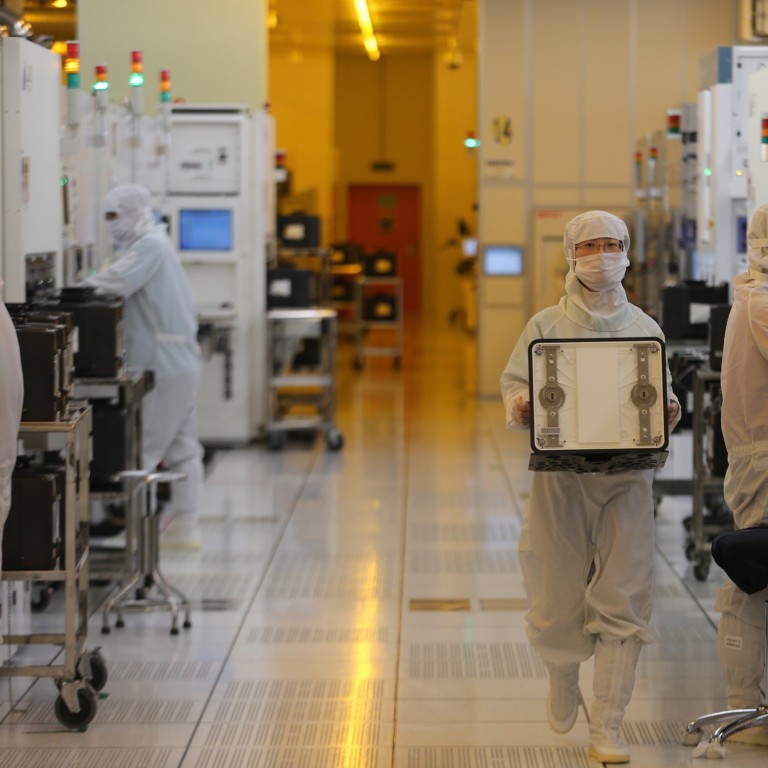
Building China’s own chip industry will be a costly 10-year marathon, former Intel China MD says
- A possible exodus of high-end manufacturing from China, triggered by the trade war, could put further pressure on the country as it tries to catch up
China’s semiconductor industry needs more than a decade to catch up with global peers due to a weaker industrial base, and the US-China trade war only adds extra pressure, according to a Chinese semiconductor expert.
“This is an extremely challenging and brutal industry, heavily reliant on long term industrial accumulation,” said Jay Huang Jie, founding partner of Jadestone Capital and former Intel Managing Director in China, speaking at a public event on Monday hosted by local think tank Our Hong Kong Foundation.
“China should be prepared for a marathon of at least a decade, which will also be loss-making [along the way],” said Huang, who left Intel in 2015 to establish his own investment firm focused on the semiconductor industry.
A possible exodus of high-end manufacturing from China, triggered by the US-China trade war, could put further pressure on the country as it tries to catch up. “It would be concerning if the high-end supply chain moves away from China after tariffs are raised. It won’t happen overnight, but there’s the possibility,” Huang said.
Huawei CEO says clash with US was ‘inevitable’
While China is on a par with global peers in chip design there is a 10-year gap in terms of the foundry business, meaning the manufacture of integrated circuits, Huang said. When it comes to equipment used in a foundry, the gap is even bigger as foreign firms, including Applied Materials from the US and ASML from the Netherlands, have a stranglehold in supply, Huang added.
Xi Jinping calls for ‘new Long March’ as China digs in for long trade war
Chinese President Xi Jinping has stressed the need for self-reliance and innovation in order to fend off various long-term challenges from the US. “Only if we own our own intellectual property and core technologies, can we then make products with core competitiveness and [we] won’t be beaten in intensifying competition,” Xi said last week.
Huawei Technologies, the world’s biggest network gear maker, was this month added to the US Commerce Department’s Entity List, after the Trump administration concluded that the Shenzhen-based company was engaged in activities “contrary to US national security or foreign policy interests”, preventing it from buying American technology, including chips and software.
In the past few years Huawei’s chip arm HiSilicon has been developing its own chipsets as a backup plan for use in its smartphone and networking products, which are considered Intel and Qualcomm alternatives, according to the company.
HiSilicon’s chip design for smartphone base-band is on a par with Qualcomm, and in terms of domestic research and production, Huawei is doing much better than its crosstown rival ZTE, which was brought to the brink of collapse following a similar ban by the US last year, Huang said. Yet, how the backup plan will play out depends on the availability of China-made alternatives needed in the chip making process, according to Huang.
“It won’t make a difference in the short term whether [chip] localisation is at 99 per cent or only 10 per cent, said Huang. “If you cannot find the domestic alternative for only one part, there’s no way around it.”










